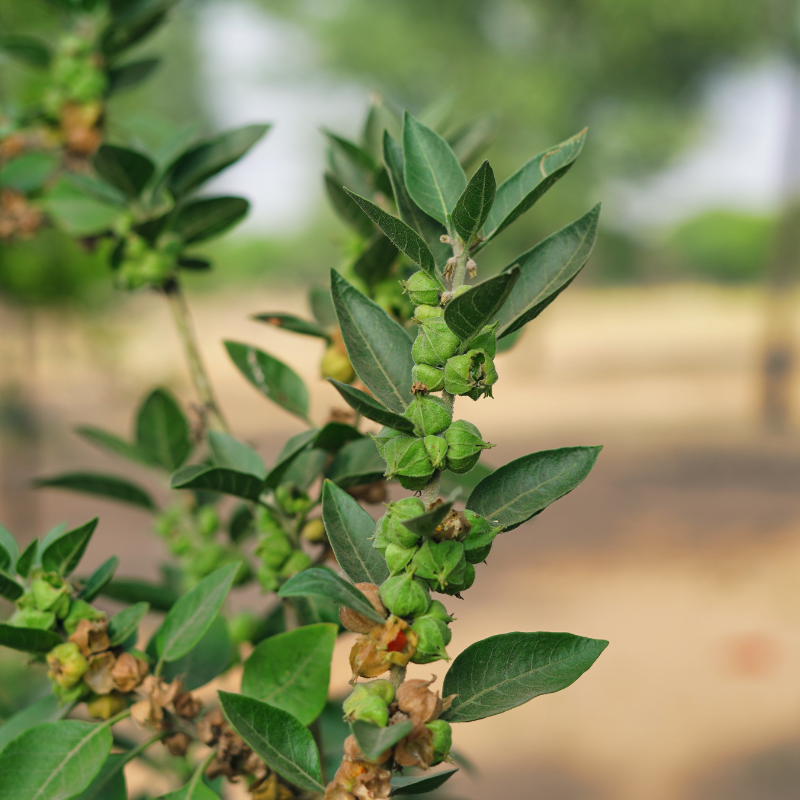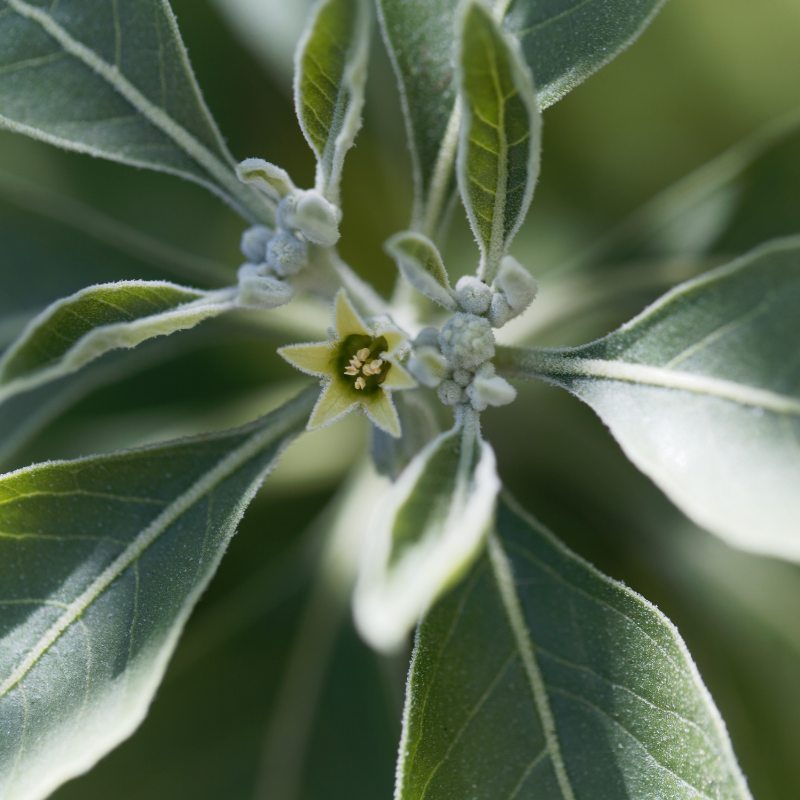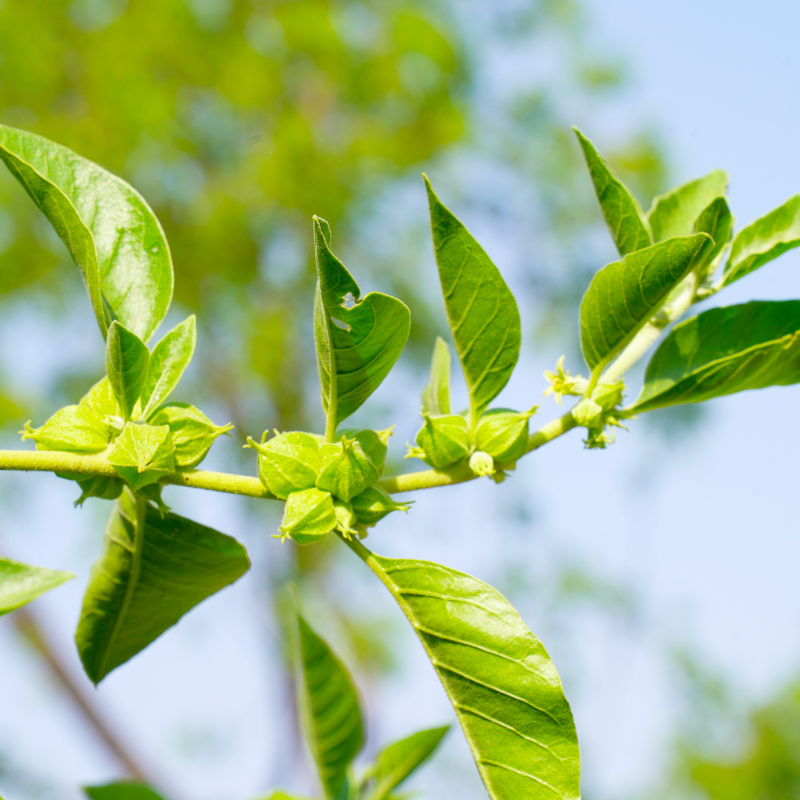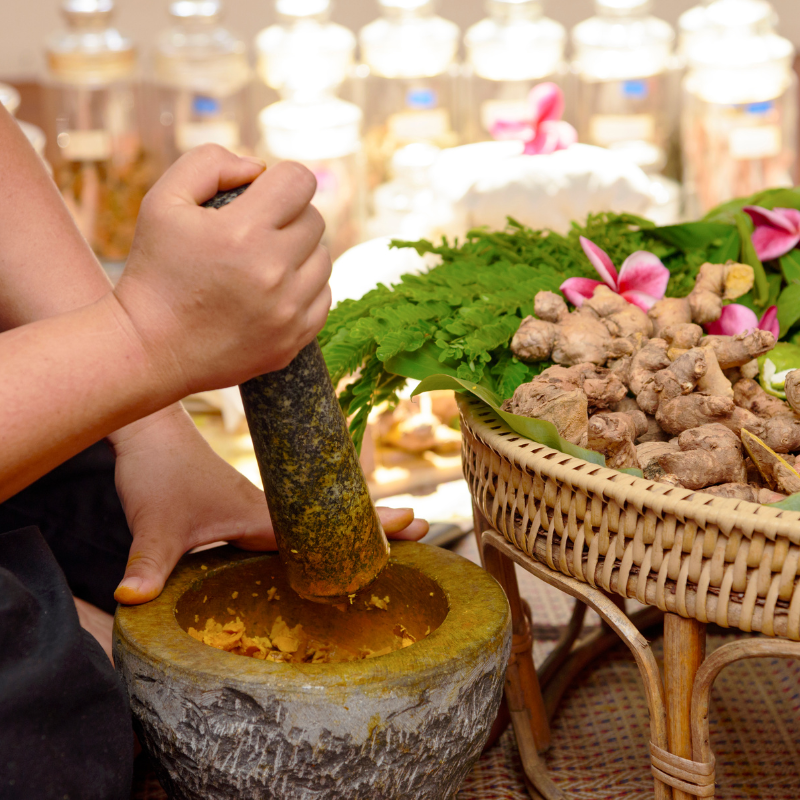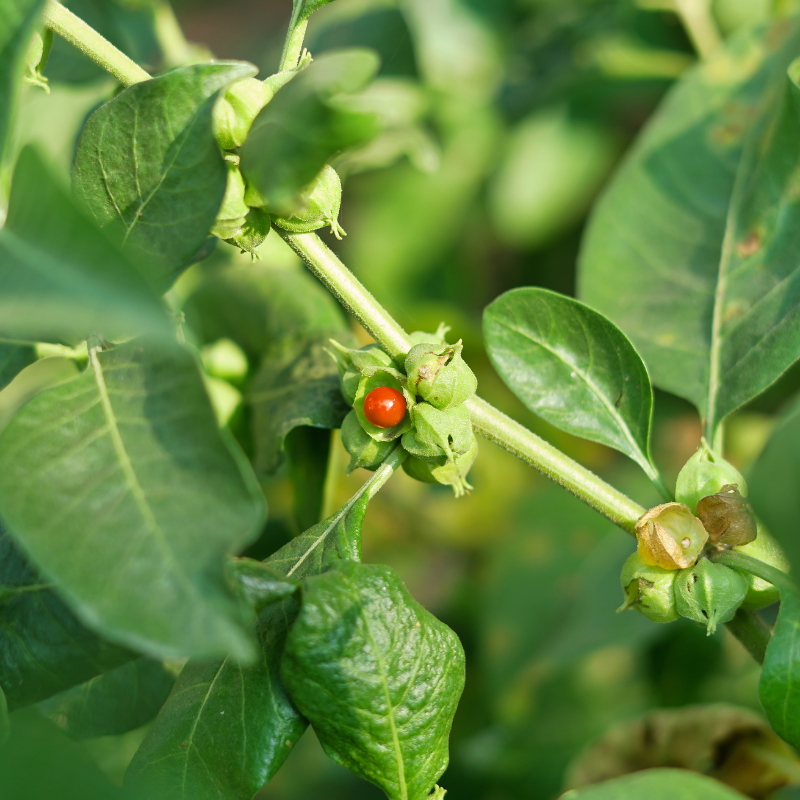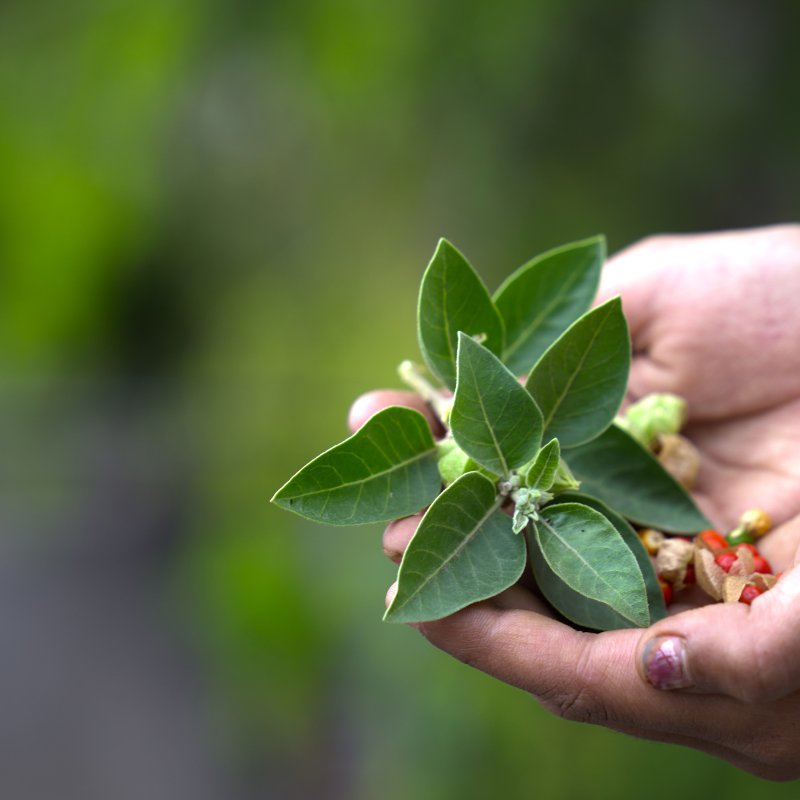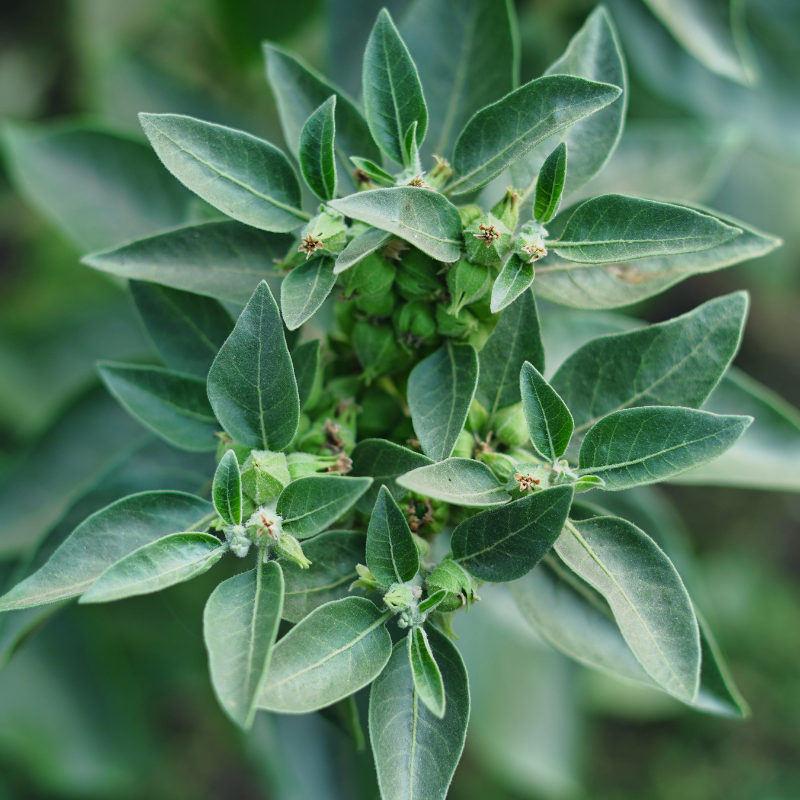Ashwagandha (Withania somnifera) Seeds
Withania somnifera, commonly known as Ashwagandha or Indian Ginseng, is a perennial herb from the Solanaceae family. Revered in Ayurvedic medicine for its adaptogenic and rejuvenating properties, this ancient medicinal plant has been used for centuries to promote vitality, reduce stress, and enhance overall health. Native to India, the Middle East, and parts of Africa, Ashwagandha is a robust and versatile plant, thriving in diverse climates.
Characteristics:
• Plant Description: Ashwagandha is a small, bushy shrub that grows up to 1–1.5 meters in height. It features ovate, green leaves and small, bell-shaped greenish-yellow flowers that develop into bright orange-red berries. Its roots, rich in active compounds, are the primary source of its medicinal value.
• Climate Adaptability: Thrives in arid to semi-arid regions and tolerates a variety of soils, including poor or sandy soils. It is drought-tolerant and prefers warm climates.
Uses and Benefits:
• Medicinal Properties: Ashwagandha is known for its adaptogenic properties, helping the body cope with stress and restore balance. It is used to boost energy, improve focus, enhance immunity, and support restful sleep. It is also believed to promote hormonal balance and reproductive health.
• Traditional Medicine: Widely used in Ayurvedic remedies for its anti-inflammatory, antioxidant, and calming effects. It is often used to manage fatigue, anxiety, and joint health.
• Culinary Uses: While its roots are primarily used in herbal powders and teas, the berries can also be used in traditional recipes.
Cultivation:
• Sowing: Sow seeds directly into well-drained soil in spring or early summer. Ashwagandha prefers a sunny location. Lightly cover the seeds with soil and keep moist until germination, which occurs in 7–14 days.
• Growth Conditions: The plant thrives in full sun and prefers sandy or loamy soils with good drainage. It requires minimal watering, making it suitable for arid and drought-prone areas.
• Maintenance: Ashwagandha is a low-maintenance crop. It grows well with little intervention and is resistant to most pests and diseases. Harvest roots in late autumn or early winter for maximum potency.
Unique Features:
• Adaptogenic Herb: One of the most powerful herbs in Ayurvedic medicine, used for promoting physical and mental well-being.
• Resilience: Grows well in challenging conditions, including dry and nutrient-poor soils, making it ideal for sustainable farming practices.
• Cultural Importance: Known as the “Rasayana” herb in Ayurveda, symbolizing vitality and longevity.
Shipping:
Available for shipping within India and worldwide. Orders are typically dispatched within 1–2 weeks.
From Deodar Seeds Company.
Withania somnifera, commonly known as Ashwagandha or Indian Ginseng, is a perennial herb from the Solanaceae family. Revered in Ayurvedic medicine for its adaptogenic and rejuvenating properties, this ancient medicinal plant has been used for centuries to promote vitality, reduce stress, and enhance overall health. Native to India, the Middle East, and parts of Africa, Ashwagandha is a robust and versatile plant, thriving in diverse climates.
Characteristics:
• Plant Description: Ashwagandha is a small, bushy shrub that grows up to 1–1.5 meters in height. It features ovate, green leaves and small, bell-shaped greenish-yellow flowers that develop into bright orange-red berries. Its roots, rich in active compounds, are the primary source of its medicinal value.
• Climate Adaptability: Thrives in arid to semi-arid regions and tolerates a variety of soils, including poor or sandy soils. It is drought-tolerant and prefers warm climates.
Uses and Benefits:
• Medicinal Properties: Ashwagandha is known for its adaptogenic properties, helping the body cope with stress and restore balance. It is used to boost energy, improve focus, enhance immunity, and support restful sleep. It is also believed to promote hormonal balance and reproductive health.
• Traditional Medicine: Widely used in Ayurvedic remedies for its anti-inflammatory, antioxidant, and calming effects. It is often used to manage fatigue, anxiety, and joint health.
• Culinary Uses: While its roots are primarily used in herbal powders and teas, the berries can also be used in traditional recipes.
Cultivation:
• Sowing: Sow seeds directly into well-drained soil in spring or early summer. Ashwagandha prefers a sunny location. Lightly cover the seeds with soil and keep moist until germination, which occurs in 7–14 days.
• Growth Conditions: The plant thrives in full sun and prefers sandy or loamy soils with good drainage. It requires minimal watering, making it suitable for arid and drought-prone areas.
• Maintenance: Ashwagandha is a low-maintenance crop. It grows well with little intervention and is resistant to most pests and diseases. Harvest roots in late autumn or early winter for maximum potency.
Unique Features:
• Adaptogenic Herb: One of the most powerful herbs in Ayurvedic medicine, used for promoting physical and mental well-being.
• Resilience: Grows well in challenging conditions, including dry and nutrient-poor soils, making it ideal for sustainable farming practices.
• Cultural Importance: Known as the “Rasayana” herb in Ayurveda, symbolizing vitality and longevity.
Shipping:
Available for shipping within India and worldwide. Orders are typically dispatched within 1–2 weeks.
From Deodar Seeds Company.
Ashwagandha, Withania somnifera seeds - 300
- Brand: Deodar Seeds
- Product Code: HER52
- Availability: In Stock
₹247.00



